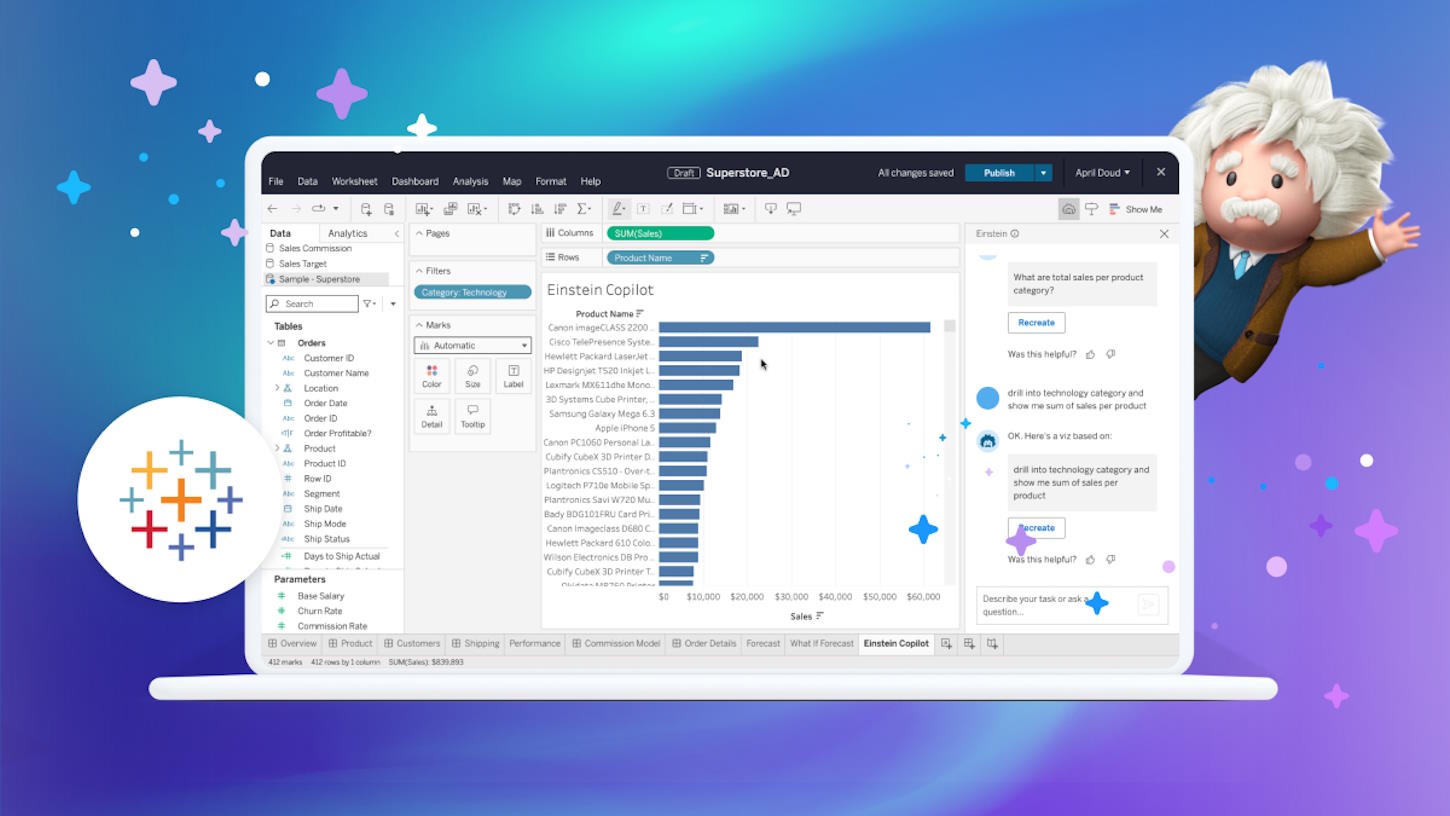With Einstein Copilot in Tableau, Salesforce aims to democratize data analysis so that anyone can create complex data visualizations without writing code.
Salesforce introduces Einstein Copilot for Tableau. The AI tool allows you to create complex data visualizations without extensive training or programming. Now available in beta, this AI assistant allows users to ask questions through an easy-to-use interface or use simple commands to streamline the process.
Einstein Copilot for Tableau leverages AI technologies such as natural language processing (NLP), machine learning (ML), and generative AI to deliver actionable insights. NLP facilitates conversations and intuitive interactions, while ML models process user queries and analyze data. Generative AI supports the creation of insights, recommendations and charts.
Integrated into Tableau Cloud, the tool allows you to access historical business data, perform advanced data analysis, and translate user intent into actionable insights. The system delivers robust insights by leveraging Tableau’s analytics infrastructure and displaying results through visuals and dashboards.
From import to export
An important aspect of Einstein Copilot for Tableau is the Einstein Trust Layer, which protects and secures private data. This layer authorizes incoming requests from users and checks whether they have the necessary rights to view specific data. Model outputs are also protected to prevent disclosure of confidential information.
Salesforce also talks about these new features in its announcement:
- Query formulation: Einstein Copilot for Tableau proactively generates automated question suggestions based on user profiles, historical data interactions, roles, and access to specific datasets – streamlining data exploration by anticipating many potential questions. Once the recommendations are presented, users can choose from a range of suggested questions or choose their own.
- Intent recognition: After users enter their questions, Einstein Copilot’s intent detection system for Tableau gets to work. It is trained for different intents and can predict what users want to achieve.
- Translate code: Einstein Copilot for Tableau’s code interpreter – based on ML models – converts queries into Tableau’s internal programming language, which can find and interact with the data in Tableau Cloud. This translation process works as a metalanguage and allows users to communicate their requirements without having to know the underlying code language.
- Code validation: The generated code goes through a strict validation process to ensure its accuracy and efficiency. This crucial step looks for errors or problems that could affect the desired result.
- Execution and visualization: After successful validation, the code is executed and the results are seamlessly transferred to Tableau Cloud. Using its data modeling capabilities and visualization platform, Tableau transforms the data into visually appealing charts or graphs that are easy to interpret and analyze.
If you would like to test Einstein Copilot within Tableau, you can sign up for the beta program here.













